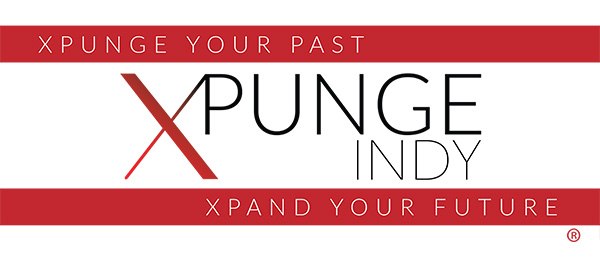Criminal Record Expungement and Sealing FAQs
Answers to commonly asked questions regarding Criminal Record Expungement, sealing, background checks, and more.
Expungement is the legal process that erases a person’s criminal record entirely. Sealing is the legal process that hides a person’s criminal record from public access.
Did your case result in a finding or a plea of guilty?
If YES, did it result in:
- A Conviction (prison, jail, probation, or conditional discharge)?
– You are not eligible for an expungement unless you were sentenced to a “Qualified Probation” – Section 10, 410 (710 or , 1410), 70 TASC Probation
– OR you were convicted (Prison, Jail, Probation or Conditional Discharge) of a misdemeanor, class 4 felony of Possession or Distribution of Cannabis.
– If you were sentenced to a qualified probation and you completed it successfully OR if you were convicted of a misdemeanor, class 4 felony of Possession or Distribution of Cannabis.
– If you were convicted of an offense but were NOT sentenced to a “Qualified Probation” you may be eligible to Seal your record instead.
– You may be eligible for a Certificate of Expungement if you were convicted of a Class 3 or 4 felony and served in the United States Armed Forces. - Supervision
– If you were found guilty or pled guilty and received court Supervision as your sentence, you may be eligible for an expungement depending on the type of offense.Contact Xpunge Chicago to begin your expungement.
If NO and your arrest or case resulted in a dismissal (SOL, Nolle Prosequi, FNPC) you are eligible for an Expungement.
Contact Xpunge Chicago to begin your expungement.
In Illinois, the process of expungement and sealing come with specific waiting periods which vary based on factors such as the nature of the offense and its final resolution.
- Expungements
– Eligibility is immediate after a Finding of Not Guilty/Acquittal, Nolle Pros, or Finding of No Probable Cause, provided there are no pending cases.
– Cases with a disposition of Stricken with Leave (SOL) require a 160-day waiting period, while those with a Non-Suit disposition have a 120-day wait.
– If placed on court supervision, most offenses qualify for expungement after 2 years following successful completion. However, offenses like domestic battery or criminal sexual abuse require a 5-year wait, with additional requirements such as a clean drug test for qualified probation. - Sealings
– Convictions, 710-1410 Probation, and TASC Probation cases become eligible after 3 years post-sentence completion. Cases under supervision qualify after 2 years post-supervision.
– Notably, no waiting period is necessary for sealing offenses if educational milestones like obtaining a diploma or degree were achieved during the sentence, aftercare, or supervised release period.
Hiring an Illinois expungement attorney ensures that your case is handled with proper efficiency. While it is not mandatory for filing an expungement or sealing petition, legal representation is strongly encouraged due to the complex nature of the law in this area, which can be confusing for those without experience. Many choose legal assistance for its convenience and the assurance of a thorough process.
If objections arise despite meeting eligibility criteria, your expungement attorney will effectively argue your case in court. Preparation for a contested expungement hearing is critical. Your attorney will gather detailed information about your personal and professional background, as well as the negative impact of the arrest or conviction on your life.
Starting with an experienced attorney to manage your expungement or sealing petition is highly recommended.
The simple answer? It depends.
Whether you need to go to court or not depends on where you are located. In places like (most of) Cook and Lake County, you may only have to go if there is an objection to your request.
In places like DuPage County, usually you have to attend in person. In many cases, your lawyer can attend for you, so you don’t have to appear in court yourself.
Rest assured, Xpunge Chicago will do everything in our power to make the situation as easy and convenient as possible for you.
The Illinois State Police and/or arresting agency of the case may oppose your request if you don’t qualify for expungement or sealing under Illinois law. The State’s Attorney could also object for legal reasons (ex: not meeting Illinois law requirements) or for discretionary reasons. This means the State’s Attorney could object even if you qualify under the law.
Discretionary reasons might involve your previous arrests, the seriousness of the offense you want to clear, any violent crimes, protection orders, or if your sentence wasn’t completed satisfactorily.
Employers (except for specific government roles such as police or state attorneys) cannot legally ask if you have expunged your criminal record. Once your record is expunged or sealed, neither public nor private employers can use it against you when making hiring decisions.
When it comes to housing or education, once something has been expunged or sealed, they will no longer see or have access to any of it. It will essentially be like it was never on your record to begin with.
Only if you are looking to expunge a case which resulted in a sentence of qualified probation or to seal a conviction for a drug offense. In this case, your request must include a recent drug test taken within 30 days of filing.
Similarly, you’ll need a clean drug test if you’re petitioning to seal a conviction for serious drug crimes like possession, manufacturing, or intent to distribute controlled substances.
However, no drug test is required if you are seeking expungement of a dismissed drug charge.
When a judge signs an order to expunge or seal a record, the Clerk of the Circuit Court removes all related records from the system, including those accessible to the public, ensuring they do not appear on background checks. Searching the Clerk’s system will yield no results, effectively erasing any trace of the case. Physical files are kept by the Clerk and can only be accessed through a court order.
Expunged records are destroyed by the arresting agency and the Illinois State Police. However, law enforcement retains access to expunged cases that involved qualified probation.
Sealed records are maintained by the Illinois State Police and remain accessible to law enforcement. Only sealed felony conviction records are available to specific employers authorized by law to conduct fingerprint-based background checks through the Illinois State Police.
Yes, these charges are eligible for expungement.
Yes, these arrests are eligible for expungement.
Most of these cases may be expunged, but only after meeting certain conditions imposed by the court.
You must have:
- Successfully completed the term of court supervision;
- Not have been arrested again; and
- (2) years must have passed since your supervision was terminated.
Oftentimes, these cases cannot be expunged, but you may qualify for sealing under certain conditions.
Contact Xpunge Chicago today to determine your options.
Information that you can provide that would help us expedite the process would be:
- Date of the arrest(s)
- Law enforcement agency that arrested you
- Charges
- Disposition (outcome) of each case
- Date that your case or sentence was completed
Obtain your entire criminal background: If you have ever been arrested, you have a record. Even if an arrest did not result in a conviction, you still have an arrest record. Our office will gather information on all cases, including the arresting agency, county, date of arrest, dismissal date, sentence, and if the sentence was completed satisfactorily.
Eligibility Determination: Once we have reviewed your entire record, we will determine whether you are eligible to expunge or seal your record, or whether you must seek a Governor’s pardon. We will also prepare and file all the necessary documents with the court. Each county and courthouse have its own procedures, including petitions, filing periods, and fees.
State’s Objection: Even if you are eligible to expunge or seal your record, the court is not required to grant the expungement or sealing. If there is an objection, you are entitled to a hearing before a judge. An Xpunge Chicago Attorney will appear at your hearing and provide a solid defense in support of your expungement or sealing.
In most cases, felony convictions cannot be expunged in Illinois. However, if your felony case was dismissed, resulted in an acquittal, or you completed certain types of probation (like TASC or Second Chance Probation), you may be eligible.
Only certain non-conviction felony cases—such as those that were dismissed, resulted in a not guilty verdict, or were vacated or pardoned—can be expunged. Convictions generally do not qualify unless they meet very specific legal exceptions. For more info see our list: Types of Felonies that can be Sealed
Expungement erases the record completely, while sealing hides it from public view but allows law enforcement and certain agencies to access it. Many felony convictions that can’t be expunged may still be eligible for sealing.
There is usually a waiting period of at least five years after completing certain types of probation. For other non-conviction records, expungement may be available immediately or after a short waiting period.
While it’s not legally required, working with an experienced expungement attorney can help you avoid mistakes, speed up the process, and increase your chances of approval.
Yes—if the case did not result in a conviction. This includes charges that were dismissed or ended in a not guilty verdict. Convictions cannot be expunged or sealed under Illinois law. If you have a conviction, the only possible relief is a Governor’s pardon.
Yes—if the case didn’t result in a conviction. Dismissed charges, not guilty verdicts, diversion programs, or Second Chance Probation may qualify. Some convictions can be sealed under certain conditions, but expungement is more limited.
Often, yes. Many misdemeanor drug charges can be expunged if they were dismissed, you were found not guilty, or you completed court supervision. Convictions may be eligible for sealing but not always for expungement.
Yes—if there was no conviction. Dismissals, not guilty outcomes, or completion of supervision can qualify. Convictions usually can’t be expunged but may be eligible for sealing in some cases.
Stay calm, don’t speak to police or anyone else about the case, and contact a criminal defense attorney right away. Avoid any contact with the alleged victim if there’s an order of protection in place.
To start your petition, you’ll need accurate and complete information about your case. This typically includes:
- Certified copies of your case records – including the complaint or indictment, court disposition, and sentencing order (if applicable).
- Arrest records – from the arresting police department or law enforcement agency.
- Proof of program completion – if you completed court supervision, counseling, or a diversion program.
- Photo ID – such as a driver’s license or state-issued ID for filing purposes.
When preparing your petition, it’s important to have all the necessary records ready. For most drug charge cases, you’ll need:
- Certified copies of your court records – including the original charge, case disposition, and sentencing order (if any).
- Arrest records – from the police department or agency that made the arrest.
- Proof of program completion – if you participated in Drug Court, Second Chance Probation, or another diversion or treatment program.
- Photo ID – such as a state-issued ID or driver’s license for filing.
Having these documents in order helps the court confirm your eligibility and process your petition without delays. An experienced expungement attorney can assist in obtaining missing records and ensuring your petition is properly filed.
In most cases, the process of expunging or sealing a drug-related felony takes 4 to 6 months from the time your petition is filed to the final court decision. This timeline can vary depending on factors like the county’s caseload, whether any objections are raised, or the complexity of your case (such as whether you participated in Second Chance Probation or another diversion program).
In Illinois, the terms DUI (Driving Under the Influence) and DWI (Driving While Intoxicated) are often used interchangeably, but under state law, DUI is the official legal term. A DUI in Illinois covers driving or being in physical control of a vehicle while impaired by alcohol, drugs, or any intoxicating substance, including prescription medication.
Some states distinguish between DUI and DWI based on blood alcohol content (BAC) or the type of substance involved, but Illinois does not make this distinction—all impaired driving offenses fall under DUI laws. Whether your charge was labeled DUI or DWI, the consequences are the same, and both can impact your driving privileges, employment, and criminal record.
In Illinois, a DUI arrest typically triggers an immediate driver’s license suspension—even before your court case is resolved. This is called a Statutory Summary Suspension and occurs if you either fail a chemical test (registering a BAC of 0.08 or higher) or refuse to take one.
For a first offense, your license is usually suspended for six months if you fail the test, or 12 months if you refuse. You may be eligible for a Monitoring Device Driving Permit (MDDP), which allows limited driving privileges with a breath alcohol ignition interlock device (BAIID) installed in your vehicle.
If you’re convicted of DUI, your license may be revoked, meaning you’ll need to complete a formal reinstatement process with the Illinois Secretary of State. An experienced DUI attorney can guide you through hearings, paperwork, and requirements to help restore your driving privileges as quickly as possible.
Yes. You can apply for jobs while your expungement or sealing petition is under review. However, until the court officially grants your petition, your DUI record will still appear on background checks. Once the record is sealed or expunged, most employers—and the general public—will no longer have access to it, giving you a clean slate for future opportunities.
Once a record is sealed, it is hidden from most public and private background checks, including those run by employers, landlords, and financial institutions. Only law enforcement and certain government agencies can still view sealed records. For most practical purposes, a sealed record gives you the same opportunities as someone without a criminal history—allowing you to move forward without your past holding you back.
In Illinois, assault and battery are two separate criminal offenses that are often confused. Assault refers to the threat or attempt to cause harm that makes another person reasonably fear being physically injured. Battery, on the other hand, involves actual physical contact that causes harm or is considered insulting or provoking—such as hitting, pushing, or striking someone.
Both charges can range from misdemeanors to felonies, depending on the severity of the incident and whether weapons, injuries, or prior convictions are involved. Understanding the difference is important when determining eligibility for expungement or record sealing, since battery—especially when aggravated—is usually treated more severely under Illinois law.
Yes. Under Illinois law, simple battery is classified as a violent offense because it involves physical contact or harm to another person. Even if no serious injury occurred, the act of intentional contact makes it a violent crime in the eyes of the court.
That said, not all battery cases are treated equally. Simple battery is often charged as a Class A misdemeanor, while aggravated battery—which may involve a weapon, injury, or a protected victim (like a police officer or teacher)—is a felony with harsher penalties. While violent felony convictions cannot be expunged, some misdemeanor or dismissed battery cases may still qualify for record sealing. Speaking with an experienced Illinois expungement attorney can help clarify your eligibility and next steps.



